New Scientist covers the latest developments in science and technology that will impact your world. New Scientist employs and commissions the best writers in their fields from all over the world. Our editorial team provide cutting-edge news, award-winning features and reports, written in concise and clear language that puts discoveries and advances in the context of everyday life today and in the future.
Elsewhere on New Scientist
Decision time • The genomic healthcare revolution is arriving – what do we want it to look like?
New Scientist
Walking on water
Sick babies saved by sequencing • A rapid, whole-genome sequencing trial in Australia has helped diagnose and treat hundreds of critically ill children with rare genetic conditions, reports Alice Klein
‘Red matter’ superconductor could transform electronics – if it works
Skyscrapers go green • The world’s largest example of an office building constructed to a “passive house” design is soon to open in Boston, Massachusetts, writes Jeremy Hsu
Analysis Cardiovascular disease • Have we overlooked a key sign of an unhealthy heart? Inflammation may be just as important as cholesterol in causing heart attacks and strokes, and treating it could lead to new tools for prevention, reports Clare Wilson
Soil bacteria enzyme generates electricity from hydrogen in the air
Brown widow spiders stalk and kill black widows
Field notes Berkshire, UK • Making trees old before their time The decayed trunks of ancient trees are a vital habitat in decline. With the help of fungi, we might be able to boost the supply of veteran trees, finds Graham Lawton
Monkeys cast doubt on ancient human ‘tools’
Mice born using eggs derived from male cells for the first time
Disgust and fear are linked to a more acidic stomach
We could store carbon as baking soda in the ocean
Covid-19 vaccine in pregnancy helps protect newborns
Orca seen with pilot whale calf may be a case of interspecies foster parenting
Surprising ‘animal’ fossil may actually be a bit of seaweed
A costly cure for sickle cell disease • A gene-editing treatment for sickle cell disease could be approved later this year, but its predicted high cost will make it inaccessible to most people, finds Michael Le Page
How bushfire smoke affected ozone layer
Hormone injection helps mice sober up
Puzzle-solving bumblebees pass on their knowledge
Really brief
Digital playtime • Parents often dismiss video gaming as worthless, but demonising the things our children love is counterproductive, says Naomi Fisher
This changes everything • The chatbotpocalypse? AI entrepreneurs like to claim products such as chatbots could become conscious at any minute. We need to resist this dystopian marketing hype, says Annalee Newitz
Sacred river
Your letters
Taking the longer view • Why do we have clocks? An ambitious book deconstructs their origins and argues for more nature-based measures, finds Jason Arunn Murugesu
Finding AI friends and lovers
Honouring the dead • This harrowing account of exposing genocide shows what forensic anthropology can achieve, says Michael Marshall
Don’t miss
The TV column • Natural wonders Wild Isles, a new BBC documentary, has spent a Planet Earth-sized budget on the UK and Ireland. Some of its footage even managed to surprise the show’s host, David Attenborough, despite all his experience, finds Bethan Ackerley
Messages from the Stone Age • Hand stencils made by Palaeolithic humans are more than mere doodles. What are they trying to tell us, asks Alison George
Signs of the times
Whose hands?
Is gravity quantum? • Physicist Jonathan Oppenheim has made a...

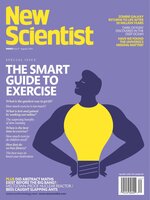 Jul 27 2024
Jul 27 2024
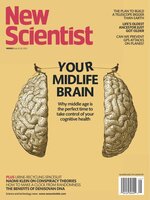 Jul 20 2024
Jul 20 2024
 Jul 13 2024
Jul 13 2024
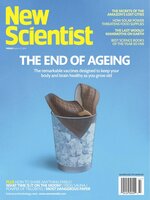 Jul 06 2024
Jul 06 2024
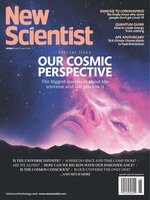 Jun 29 2024
Jun 29 2024
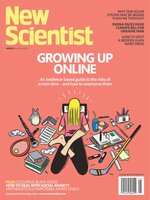 Jun 22 2024
Jun 22 2024
 Jun 15 2024
Jun 15 2024
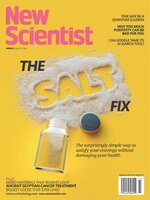 Jun 08 2024
Jun 08 2024
 Jun 01 2024
Jun 01 2024
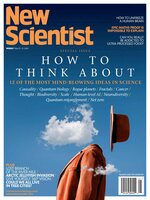 May 25 2024
May 25 2024
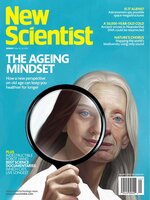 May 18 2024
May 18 2024
 May 11 2024
May 11 2024
 May 04 2024
May 04 2024
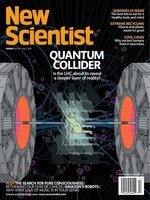 Apr 27 2024
Apr 27 2024
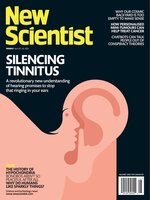 Apr 20 2024
Apr 20 2024
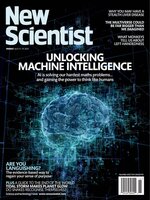 Apr 13 2024
Apr 13 2024
 Apr 06 2024
Apr 06 2024
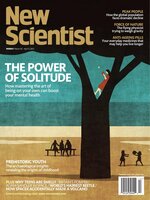 Mar 30 2024
Mar 30 2024
 Mar 23 2024
Mar 23 2024
 Mar 16 2024
Mar 16 2024
 Mar 09 2024
Mar 09 2024
 Mar 02 2024
Mar 02 2024
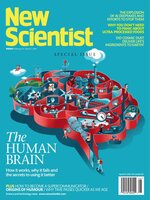 Feb 24 2024
Feb 24 2024
 Feb 17 2024
Feb 17 2024
